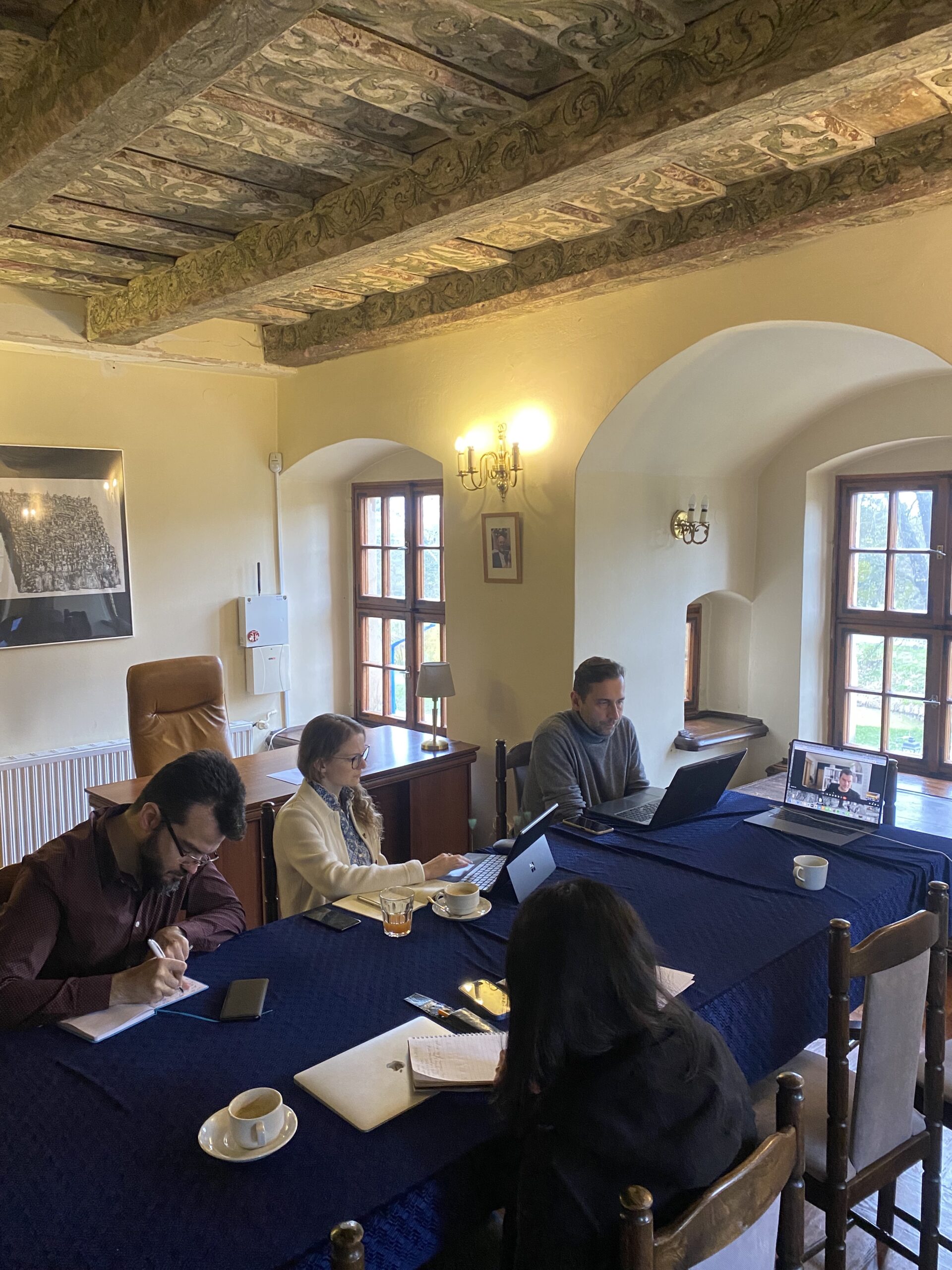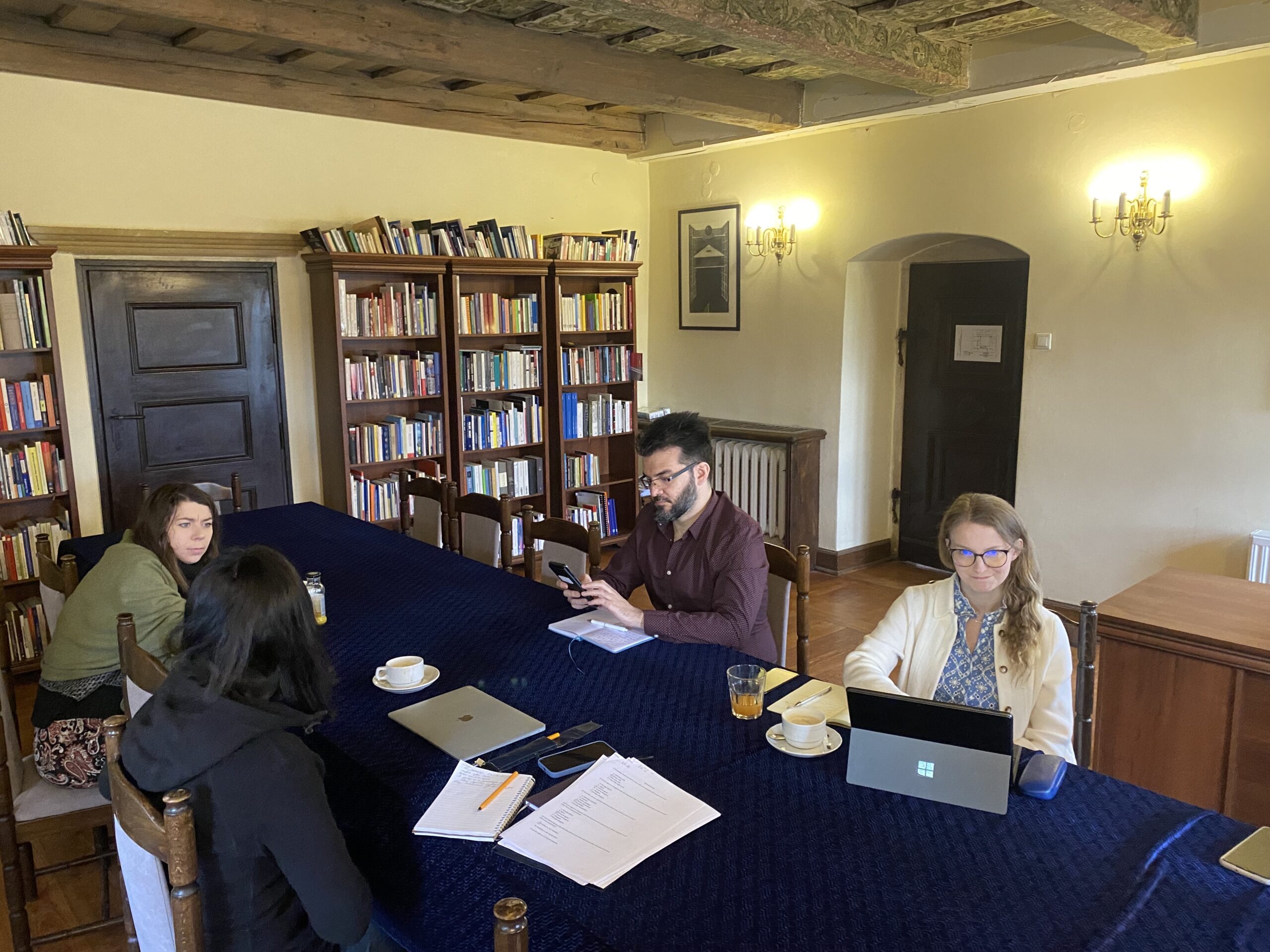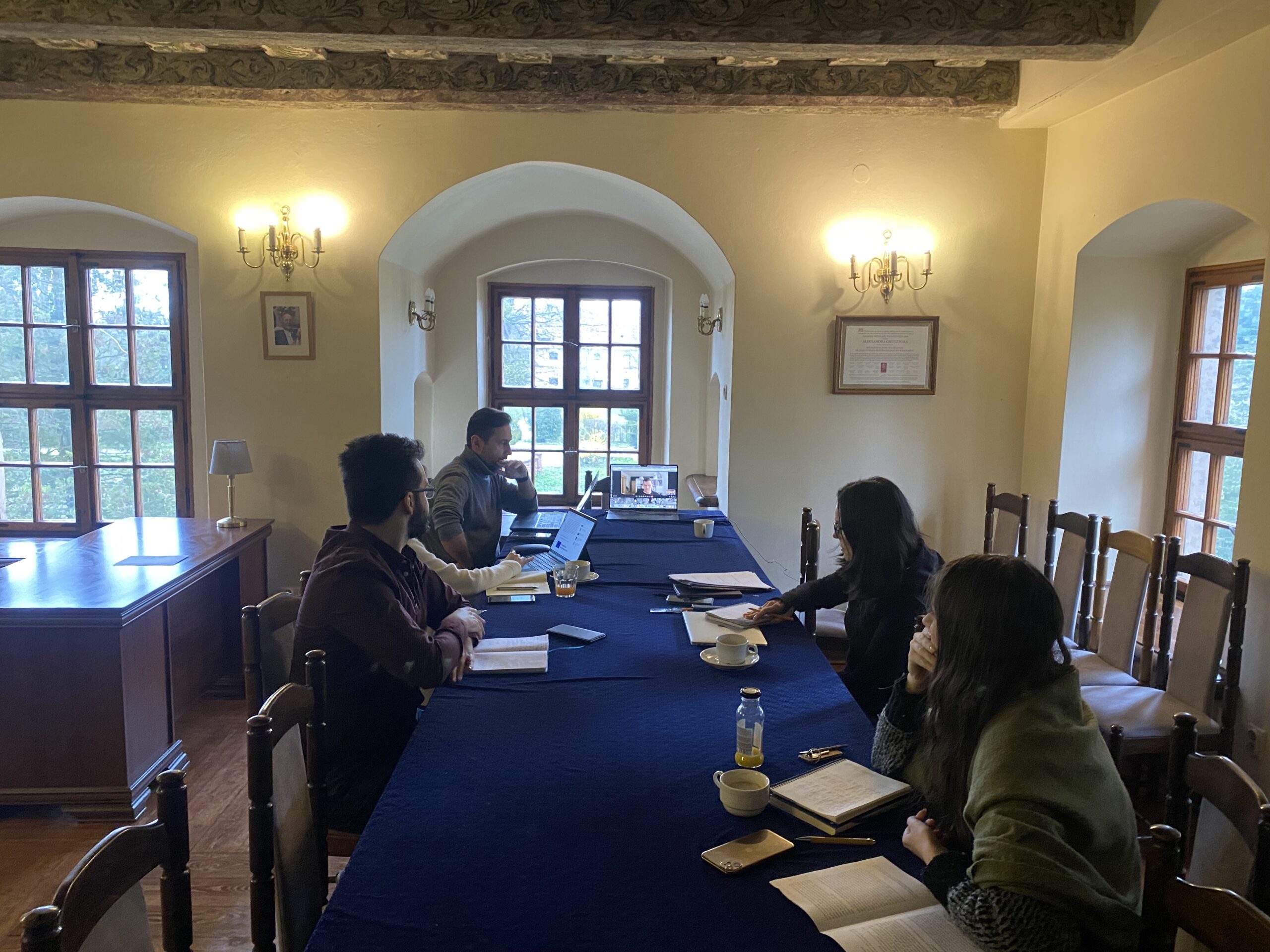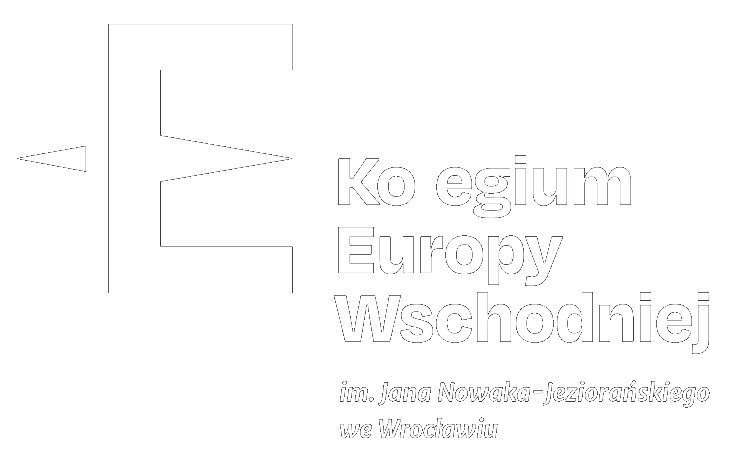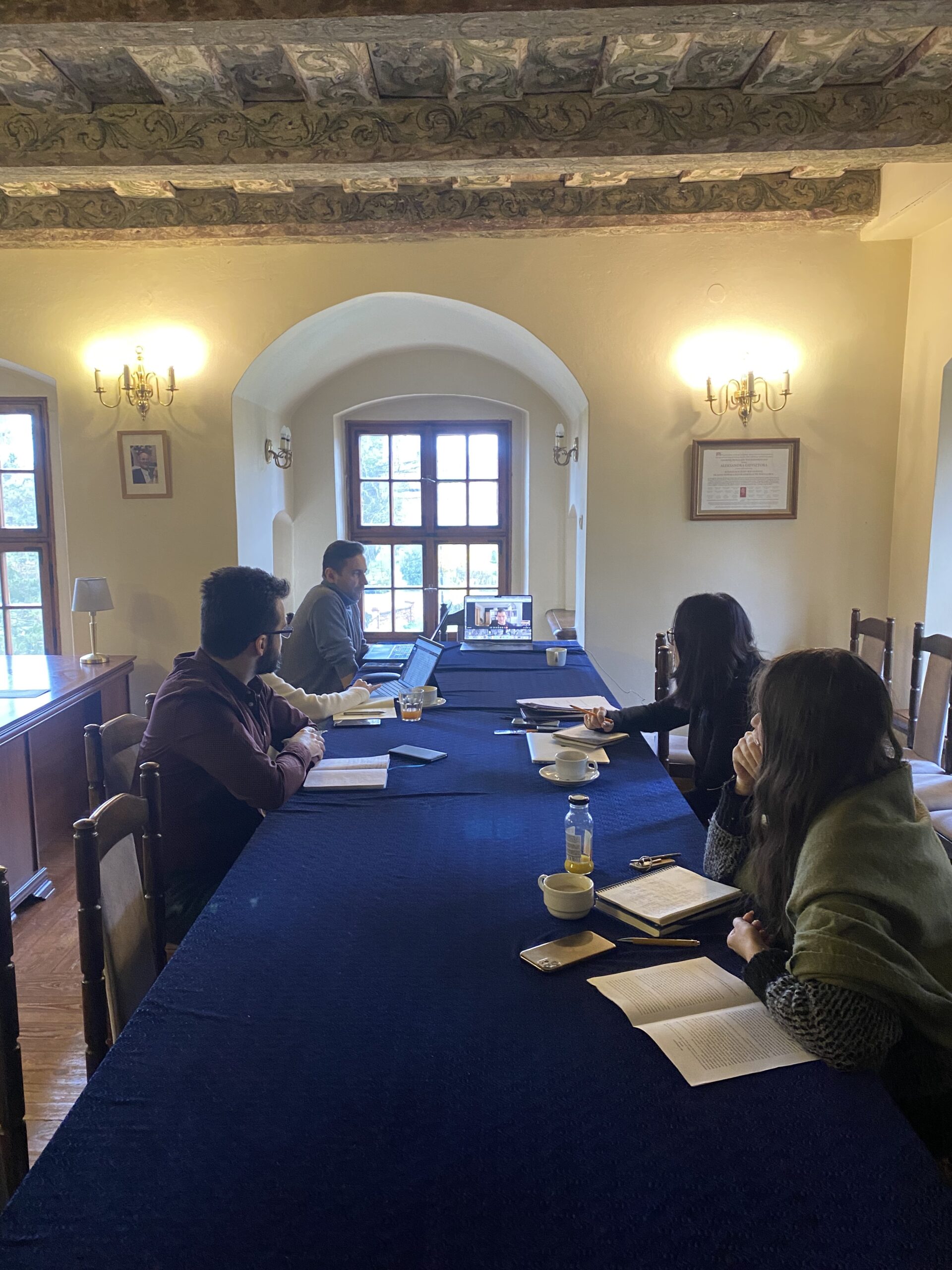 The second meeting of the international expert group associated with the College of Eastern Europe centred around advancing the “Protecting European Values” project, took place in Wojnowice (Poland) on 23-24th of March 2024. Our group brings together researchers from countries such as Romania, Poland, Hungary, Germany, France, Spain, the Netherlands, and Bulgaria, with the aim of mapping threats to democracy in the EU member states and seeking solutions to the rising tide of authoritarian trends, nationalism and populism spreading across the continent.
The second meeting of the international expert group associated with the College of Eastern Europe centred around advancing the “Protecting European Values” project, took place in Wojnowice (Poland) on 23-24th of March 2024. Our group brings together researchers from countries such as Romania, Poland, Hungary, Germany, France, Spain, the Netherlands, and Bulgaria, with the aim of mapping threats to democracy in the EU member states and seeking solutions to the rising tide of authoritarian trends, nationalism and populism spreading across the continent.
During our gathering, we delved into discussions about contemporary political developments across EU states and their implications for the future of the Union, particularly amidst the upcoming European Parliament elections. We paid special attention to countries where radical and populist parties enjoy the largest support in opinion polls. Subsequently, we discussed the methodology of our project as well as the findings of a survey we conducted, which investigates the influence of political discourse intended to breed societal insecurity on citizens’ readiness to cede their rights for a more powerful and centralised state authority. Finally we outlined the primary thesis of our forthcoming report, scheduled for release around the time of the European elections. Alongside our analysis of current political trends and our activities, we’ve been deliberating on the objectives we should pursue in the near future. Consequently, we are planning to release reports, policy papers, and articles, along with producing podcasts that will delve into topics such as Russia’s influence on EU politics, the emergence of radical right and left-wing nationalists in Eastern Germany, and the current state and future prospects of democracy in Central Europe. To gain comprehensive insights into the challenges facing contemporary European societies, we set the schedule of study trips to Belgium, Austria and Romania during which we will conduct interviews and exchange opinions with experts well-versed in the unique political and social landscapes of the respective countries. We will also organise roundtables bringing together political scientists, which will take place in key Central European capitals (Prague, Bratislava, Budapest) as well as in Eastern Germany and Poland.
During the meeting we have also reviewed our agenda for 2025 which we are going to submit to the European Commission in the coming months. In the following year, our project will extend its focus on the parliamentary elections in Germany and Czechia and the local and presidential ones in Portugal, further enriching our understanding and exploration of pertinent issues.
We will not only dissect the strategies of the EU’s populist parties but also investigate the responses to this phenomenon of mainstream and democratic factions. With a desire to explore contemporary phenomena comprehensively, including political, sociological, and philosophical aspects, we will study the perception of democracy by EU citizens by arranging focus groups in several member states.
We warmly invite you to stay updated on our endeavours through the Protecting European Values website.


